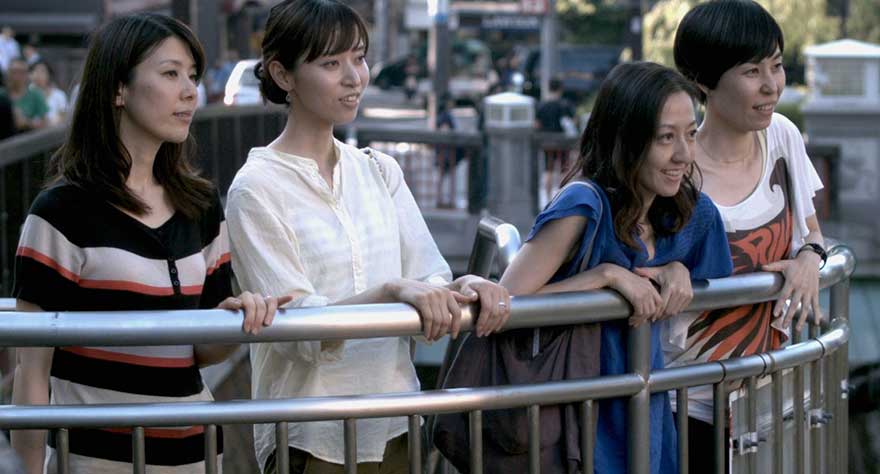
With a gargantuan 5+ hour runtime, 'Happy Hour' is the kind of intimate character study that's unheard of.

With a gargantuan 5+ hour runtime, 'Happy Hour' is the kind of intimate character study that's unheard of.
Clocking it at well over five hours in length, Ryûsuke Hamaguchi’s Happy Hour isn’t so much a character study as it is an entire character course. Following four women in their late thirties as they attempt to deal with their individual relationship troubles, the film is filled with relatable struggles and honest, emotional performances, but ultimately becomes a victim of its own ambitions.
Having been best friends for many years, Jun (Rira Kawamura), Akari (Sachie Tanaka), Sakurako (Hazuki Kikuchi), and Fumi (Maiko Mihara) have formed a nearly unbreakable bond together. They meet up frequently to gossip about their lives and air their grievances about their currently living situations. Having all been married at one point, their ideas about a woman’s place in a marriage differ. After Jun reveals a shocking secret about her own marriage, her friends have mixed reactions, adding a strain to their friendship.
Above all, Happy Hour is a movie about infidelity and how it affects not only those in the relationship but their acquaintances as well. Knowing that your friend is committing adultery is a tough spot to be in because it leaves a choice between loyalty to a friend and a commitment to doing what’s right. Adding to the complexity is the discovery that the infidelity involves a mutual friend, which is a major issue explored in Happy Hour. The results aren’t over-the-top or cinematic in any way. Instead, they’re deeply rooted in reality. All of the events feel as though they could happen tomorrow, which has its pros and cons as a filmmaking technique. It certainly adds to the realistic tone of the film, but it prevents the movie from being particularly exciting. Happy Hour certainly isn’t boring, but it lacks a frenetic energy.
The defining aspect of the film is the almost unheard of running time, which wouldn’t feel nearly as gratuitous if many scenes didn’t come across as unnecessary filler. As human as it is, there are a significant amount of scenes that could be trimmed down—if not eliminated completely—without the film losing any effect. One early sequence finds the protagonists attending a pseudo-spiritual workshop where they participate in borderline cult-like team-building exercises. After ten minutes, the point is made—the women’s personal problems mirror the teacher’s lessons in a Boy Meets World kind of way, albeit much more mature and existential—but the scene continues on for much longer. Hamaguchi seems determined to beat certain ideas into viewers’ brains, despite establishing them successfully in the first attempt. In a way, it seems as though he isn’t completely confident in his ability to express certain ideas, even though his ideas are quite strong.
The four leads deliver naturalistic performances that make their already empathetic characters all the more believable. Engaging in numerous, lengthy conversations about both nothing and everything, it’s almost impossible not to see aspects of your own friends in the women. They’re complex, generally likable, and extremely relatable. They discuss mundane aspects of everyday life with the same enthusiasm as more existential concepts involving their uncertain futures. Thankfully, these conversations are generally entertaining, considering the film is almost brutally dialogue-heavy. It’s not just a film with a lot of talking—it borders on being a film about talking.
At times, Happy Hour is a strenuous watch and a pretty tough sell, given the over five-hour commitment needed to experience it in full. However, if you do commit to viewing the film, the payoff is there. The characters are fully developed and fascinating, and their story arcs are engrossing in ways that few are. It lacks many of the qualifying themes to call it an “epic,” as there are no colossal set pieces or big action sequences—or action of any kind, really—but there is a strangely “big” feel to the film. It’s a heavy drama, thick with human emotion, that could benefit from being just a bit more brisk. Perhaps in the future, Hamaguchi will consider creating a similarly engaging feature that is much shorter in length.